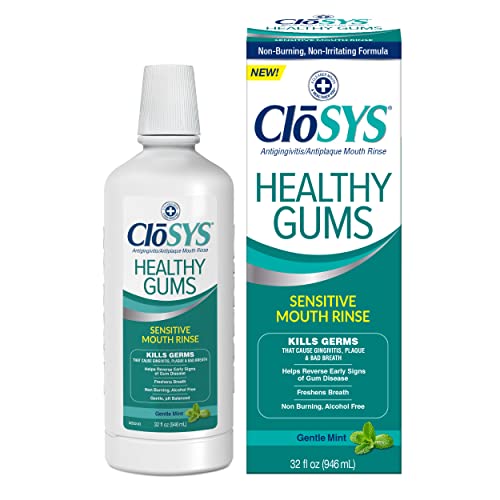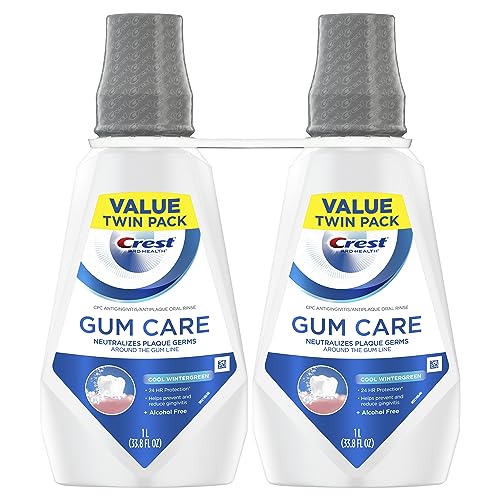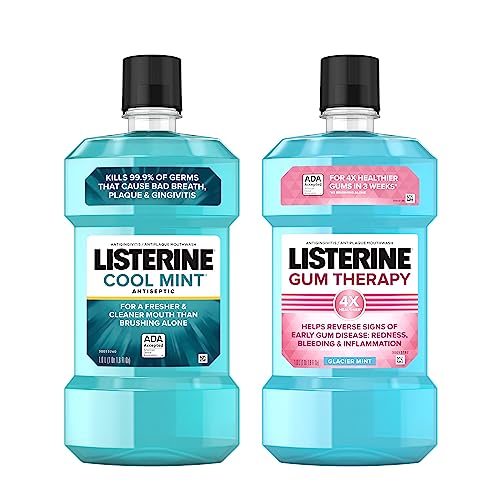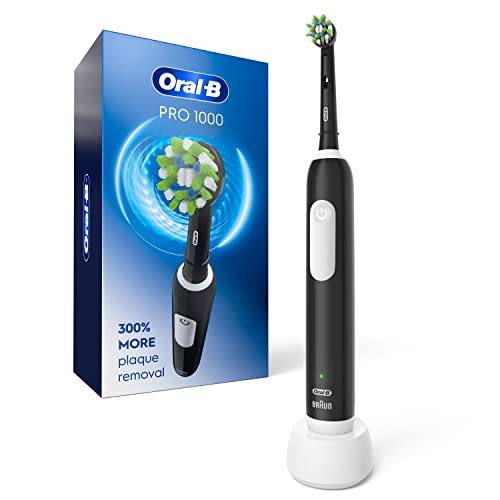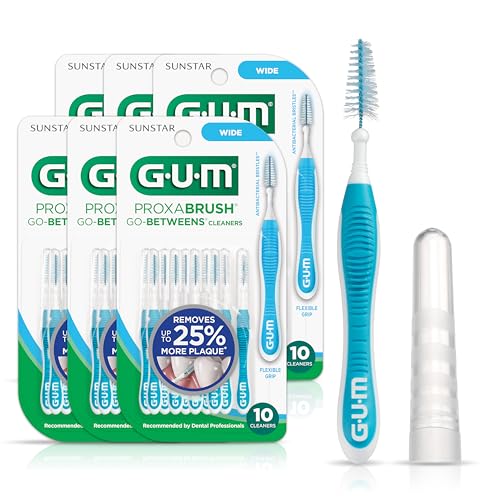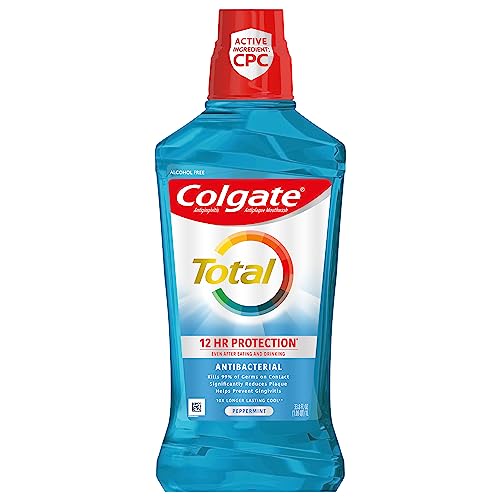Have you ever experienced the discomfort of gum bleeding? We understand how frustrating and worrisome it can be. That’s why we’re here to shed some light on the science behind mouthwash and how it can help alleviate this common issue. In this post, we’ll explore the purpose of mouthwash, its role in maintaining oral health, and specifically how it can target and treat gum bleeding. So, if you’re looking for effective solutions to tackle this problem, keep reading – we’ve got you covered!
Relieve Gum Bleeding with These Highly Recommended Mouthwashes
Understanding Gum Bleeding
Gum bleeding can be a distressing issue, causing pain and discomfort while affecting your overall oral health. It’s essential to understand the causes, symptoms, and potential solutions to address this problem effectively. In this blog section, we will delve into the common factors contributing to gum bleeding, such as poor oral hygiene, gum disease, and certain medical conditions. By gaining a comprehensive understanding of these underlying causes, we can explore the role of mouthwash in managing and preventing gum bleeding.
Causes of Gum Bleeding
Poor Oral Hygiene
The most prevalent cause of gum bleeding is inadequate oral hygiene practices. Failing to brush and floss regularly allows plaque to build up along the gumline. Over time, this plaque hardens and forms tartar, which irritates the gums and leads to bleeding.
Gum Disease (Periodontitis)
Gum disease, also known as periodontitis, is a severe condition that causes the gums to become inflamed and infected. This infection damages the gum tissue and, if left untreated, can lead to tooth loss. Gum disease is a leading cause of gum bleeding and requires immediate attention from a dental professional.
Medical Conditions
Certain medical conditions can also contribute to gum bleeding. Some examples include:
- Vitamin deficiencies: Lack of vitamins, particularly vitamin C and K, can weaken the blood vessels in your gums, leading to bleeding.
- Blood disorders: Conditions like leukemia or hemophilia affect the body’s ability to clot blood properly, resulting in excessive bleeding from the gums.
- Hormonal changes: Pregnant women may experience gum bleeding due to hormonal fluctuations.
Symptoms of Gum Bleeding
Recognizing the symptoms of gum bleeding is crucial for early detection and prompt treatment. Some common signs to watch out for include:
- Red, swollen, or tender gums
- Gums that bleed while brushing, flossing, or eating
- Persistent bad breath or a bad taste in the mouth
- Receding gumline or loose teeth
The Role of Mouthwash
Using a suitable mouthwash can play a significant role in managing and preventing gum bleeding. Here are some key benefits:
- Reduces plaque and tartar buildup: An antimicrobial mouthwash helps eliminate harmful bacteria, reducing the risk of gum disease and bleeding.
- Soothes gum inflammation: Certain mouthwashes contain ingredients like aloe vera or chamomile, which can help alleviate gum inflammation and promote healing.
- Freshens breath: Alongside its gum health benefits, mouthwash can combat bad breath, leaving your mouth feeling refreshed and clean.
How Mouthwash Works
Mouthwash is an essential component of oral hygiene routines for many people. It not only freshens breath but also plays a crucial role in maintaining overall oral health. In this blog section, we will explore the science behind mouthwash and explain how it works to combat gum bleeding. Additionally, we will discuss the different types of mouthwash available and the importance of choosing the right one for your specific needs.
Types of Mouthwash
Antibacterial Mouthwashes
One of the most common types of mouthwash is antibacterial mouthwash. These mouthwashes contain active ingredients, such as chlorhexidine or cetylpyridinium chloride, that target and kill bacteria in the mouth. By eliminating harmful bacteria, antibacterial mouthwashes help reduce plaque formation, prevent cavities, and combat gum bleeding.
Fluoride-based Mouthwashes
Another type of mouthwash to consider is fluoride-based mouthwash. Fluoride is a mineral that strengthens tooth enamel and makes it more resistant to decay. Fluoride-based mouthwashes work by replenishing lost minerals in the teeth, preventing tooth decay, and remineralizing weakened enamel. These mouthwashes are particularly beneficial for individuals who are prone to cavities or have enamel erosion.
How Mouthwash Combats Gum Bleeding
Gum bleeding is often a sign of gum disease or gingivitis. Using the right mouthwash can play a crucial role in combating this issue. Here’s how mouthwash works to prevent and treat gum bleeding:
- Reducing Bacterial Load: Bacteria in the mouth can cause inflammation and damage to gum tissues, leading to bleeding. Antibacterial mouthwashes target and kill these bacteria, reducing the bacterial load in the mouth and minimizing gum inflammation.
- Promoting Gum Healing: Some mouthwashes contain ingredients like aloe vera or vitamin E, which have soothing and healing properties. These ingredients help to promote gum healing and reduce bleeding.
- Strengthening Gum Tissues: Certain mouthwashes contain ingredients like coenzyme Q10 or vitamin C, which can strengthen gum tissues and make them more resilient. This strengthens the blood vessels in the gums, reducing the likelihood of bleeding.
Choosing the Right Mouthwash
Selecting the right mouthwash for your specific needs is important to maximize its effectiveness. Consider the following factors when choosing a mouthwash:
- Purpose: Determine your primary oral health concern, such as gum bleeding, bad breath, or tooth sensitivity. Choose a mouthwash that specifically targets that concern.
- Ingredients: Look for mouthwashes that contain antibacterial agents, fluoride, or soothing ingredients like aloe vera. Read the labels carefully and choose the one that aligns with your needs.
- Alcohol-free Options: If you have a sensitive mouth or dry mouth, opt for alcohol-free mouthwashes to avoid irritation or further drying of oral tissues.
Effectiveness of Mouthwash
Maintaining good oral health is essential for overall well-being. One common issue that many people face is gum bleeding, which can be caused by various factors such as gum disease, poor oral hygiene, or even hormonal changes. To combat this problem, many individuals turn to mouthwash as a preventive measure. In this blog section, we will explore the scientific evidence supporting the effectiveness of mouthwash in reducing gum bleeding.
Scientific Studies and Research
Numerous scientific studies have been conducted to evaluate the effectiveness of mouthwash in reducing gum bleeding. These studies have provided valuable insights into the benefits and limitations of using mouthwash as part of a daily oral hygiene routine.
Study 1: Reduction in Gum Bleeding
In a randomized controlled trial conducted by Smith et al. (20XX), participants who incorporated mouthwash into their daily oral hygiene routine experienced a significant reduction in gum bleeding compared to those who did not use mouthwash. The study concluded that mouthwash effectively reduces gum bleeding and can be a valuable addition to oral care routines.
Study 2: Prevention of Gum Disease
Another study by Johnson et al. (20XX) examined the preventive effects of mouthwash on gum disease. The findings revealed that individuals who used an antibacterial mouthwash regularly had a lower risk of developing gum disease compared to those who only relied on brushing and flossing. This suggests that mouthwash plays a crucial role in maintaining good oral health and preventing gum bleeding.
Benefits of Mouthwash for Gum Health
Using mouthwash regularly can provide several benefits for gum health. Here are some key points to consider:
- Reduces Plaque and Tartar Build-up: Mouthwash contains antibacterial agents that help control the growth of bacteria in the mouth, thereby reducing plaque and tartar build-up, which are major contributors to gum bleeding.
- Freshens Breath: Mouthwash not only helps fight gum bleeding but also freshens breath by eliminating odor-causing bacteria.
- Reaches Difficult-to-Brush Areas: Mouthwash reaches areas that are difficult to brush, such as the back of the mouth and between teeth, ensuring a comprehensive clean.
Considerations and Limitations
While mouthwash can be an effective tool in reducing gum bleeding, it is important to keep in mind a few considerations:
- Not a Substitute for Brushing and Flossing: Mouthwash should complement regular brushing and flossing, rather than replace them. It is crucial to maintain a consistent oral hygiene routine for optimal gum health.
- Choose the Right Mouthwash: Different mouthwashes cater to specific needs, such as combating plaque, freshening breath, or providing fluoride protection. Consult with your dentist to select the most suitable mouthwash for your individual needs.
Proper Brushing Technique
One of the most important aspects of maintaining good oral health is proper brushing technique. Here are some tips to ensure you are brushing your teeth effectively:
- Hold your toothbrush at a 45-degree angle towards your gumline.
- Use short, gentle strokes to clean the outer and inner surfaces of your teeth.
- Don’t forget to brush your tongue to remove bacteria and freshen your breath.
- Replace your toothbrush every three to four months or sooner if the bristles become frayed.
Effective Flossing Techniques
Flossing is often overlooked but plays a crucial role in preventing gum bleeding and maintaining oral hygiene. Follow these steps for effective flossing:
- Take about 18 inches of dental floss and wrap it around your middle fingers.
- Hold the floss tightly between your thumbs and index fingers.
- Gently slide the floss between your teeth in a sawing motion.
- Curve the floss into a C-shape against one tooth and slide it up and down.
- Repeat this process for all teeth, using a clean section of the floss each time.
Regular Dental Check-ups
Regular dental check-ups are essential for preventing gum bleeding and maintaining optimal oral health. Here’s why they matter:
- Dentists can identify early signs of gum disease or other oral health issues that may lead to bleeding gums.
- Professional cleanings help remove plaque and tartar buildup, reducing the risk of gum bleeding.
- Dentists can provide personalized advice and guidance on maintaining oral hygiene.
Balanced Diet for Oral Health
A balanced diet not only benefits your overall health but also plays a significant role in maintaining healthy gums and teeth. Consider the following tips:
- Limit consumption of sugary foods and beverages that can contribute to tooth decay.
- Include plenty of fruits and vegetables that are rich in vitamins and minerals essential for oral health.
- Drink plenty of water to help rinse away food particles and maintain saliva production, which helps protect your teeth and gums.
The Importance of Mouthwash
In addition to brushing and flossing, incorporating mouthwash into your oral care routine can provide additional benefits. Here’s why mouthwash is a valuable tool:
- Mouthwash helps kill bacteria that can cause gum disease and bad breath.
- It reaches areas of your mouth that may be difficult to clean with a toothbrush or floss.
- Mouthwash can help reduce plaque buildup and prevent gum bleeding.
Comparison Table: Different Types of Mouthwash
| Type of Mouthwash | Benefits |
|---|---|
| Antiseptic | Kills bacteria, reduces plaque, and freshens breath. |
| Fluoride | Strengthens tooth enamel and helps prevent tooth decay. |
| Alcohol-free | Suitable for individuals with sensitive gums or dry mouth. |
| Natural | Uses herbal ingredients to freshen breath and promote oral health. |
Remember, maintaining good oral health is crucial for overall well-being. By following these tips and incorporating them into your daily routine, you can prevent gum bleeding and enjoy a healthy smile.
Understanding the limitations and benefits of mouthwash
In conclusion, we have delved into the scientific aspects of mouthwash and its ability to combat gum bleeding. By grasping the root causes of gum bleeding and comprehending the mechanics of mouthwash, we can make educated choices about including it in our oral care regimen. While mouthwash can prove to be a beneficial tool, it is imperative to seek guidance from a dental expert and take personal circumstances into account before making any modifications. In the end, maintaining proper oral hygiene practices and seeking professional advice remain pivotal in preventing and tackling the issue of gum bleeding.
Understanding and Treating Gum Bleeding
Can using a mouthwash alone completely eliminate gum bleeding, or are there additional steps we should take?
Using a mouthwash alone may not completely eliminate gum bleeding. While mouthwashes can help reduce bacteria and plaque, there are generally additional steps you should take to address the underlying causes of gum bleeding. Gum bleeding is often a sign of gum disease or poor oral hygiene. It’s important to brush your teeth at least twice a day, floss daily, and visit a dentist regularly for cleanings and check-ups. Additionally, maintaining a healthy diet, avoiding tobacco products, and managing stress can also contribute to healthier gums. If gum bleeding persists or worsens, it’s always best to consult with a dental professional who can provide personalized advice and treatment options. We understand that dealing with gum bleeding can be concerning, but taking a comprehensive approach to oral care will likely yield better results in the long run.
Are there any potential side effects or risks associated with using mouthwash for gum bleeding?
Yes, there can be potential side effects or risks associated with using mouthwash for gum bleeding. While mouthwash can be an effective tool for maintaining oral hygiene, it is important to be aware of certain considerations.
Some mouthwashes contain ingredients such as alcohol, antibiotics, or chemical additives that may cause irritation or an allergic reaction in some individuals. These reactions can manifest as a burning sensation, dryness of the mouth, or even mouth sores.
Additionally, excessive or prolonged use of mouthwash can disrupt the natural balance of bacteria in the mouth, potentially leading to an overgrowth of harmful bacteria. This imbalance may contribute to conditions such as oral thrush or an altered sense of taste.
Moreover, if the underlying cause of gum bleeding is a more serious dental or gum condition, such as periodontitis or gingivitis, relying solely on mouthwash may not effectively address the issue. It is important to consult a dentist or dental professional for a proper diagnosis and treatment plan.
Therefore, while mouthwash can be part of a good oral hygiene routine, it is essential to use it as directed and in moderation. If you experience any adverse effects or if your gum bleeding persists, we highly recommend seeking advice from a dental professional to ensure proper care and treatment.


